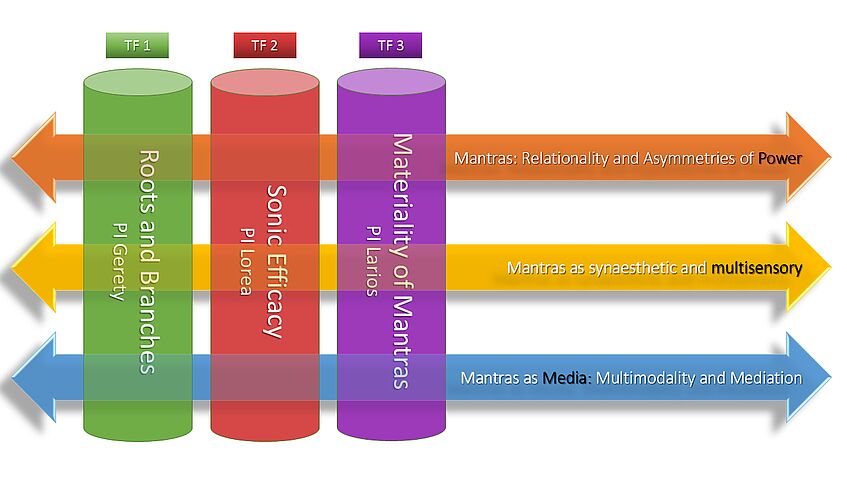Our Research Themes
Our research is organized around three central themes:

Mantras as Media
This theme explores how mantras function as mediums across various forms—written, tattooed, carved, and digital. It examines how notions of efficacy and authenticity are maintained as mantras travel through different media, including the body, senses, and cognition. This approach, inspired by McLuhan's concept of media as extensions of human faculties and de Vries's insights into religious communication technologies, integrates the sonic, material, and efficacious dimensions of mantras. We view mantras in any form—whether as uttered sound, inscribed on fabric or stone—as mediators between practitioners, deities, and cosmological entities. The project pioneers a new research paradigm by emphasizing how mantras operate across diverse media and how these media influence their role and effectiveness.
Synaesthetic and Multisensory
This theme investigates how mantras engage multiple senses and transcend mere auditory experience. It explores the shared sonic ontology that allows mantras to move across different regions and religious contexts. By examining mantras as synaesthetic and multisensory phenomena, the project challenges the conventional focus on sound alone, considering how sonic vibrations intersect with visualizations, embodiment, and textual dimensions. This approach draws on sound studies and ethnographic data from South Asia, highlighting how mantras animate conceptions of the self and the divine through a broader sensory spectrum. A key deliverable is an online sonic archive, developed through new data from sonic ethnography.
Relationality and Power
This theme addresses the role of mantras in mediating power dynamics and social hierarchies. It explores how mantras function as relational tools in negotiating relationships among individuals, groups, and institutions. This perspective examines how mantras serve not only as symbolic capital but also as mechanisms that structure and perpetuate social inequalities. The project investigates how mantras' agency and authority contribute to power asymmetries related to religion, class, caste, and gender. It highlights mantras as both spiritual tools and political instruments, used by marginalized groups for social mobility and justice, thus integrating spiritual efficacy with the dynamics of domination and resistance.
Each theme is investigated using interdisciplinary methods to ensure a comprehensive understanding of mantras.
